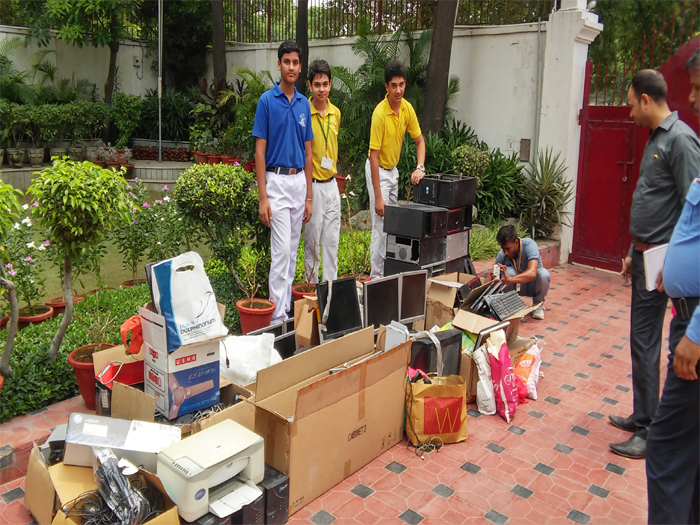Safe E Waste Disposal Drive at The Indian School
Like most of the developing world, India is being transformed by both globalisation and urbanisation. Many urban Indians, especially those from the middle and affluent classes, have become fervent consumers in the last two decades, leading to a quantum leap in the demand for resources and intense pressure on the environment.
Most Indian cities are run on the work of the informal sector, which includes the 1% of an average city's population who recycle waste and reduce pressure on the environment. Their work helps clean up our cities by recycling approximately 20% of the waste generated. And yet, recyclers lack formal recognition, equal rights, secure and safe livelihoods and dignity. And as consumption patterns change with a growing economy, their work exposes them to ever higher levels of pollution and dangerous toxins.
[gallery link="file"]
India produces 42 million tonnes of waste annually. With rapid urbanisation, this will only multiply, as will the number of people handling it, at considerable risk to their health. Managing waste, ensuring sustainable consumption and a healthy environment for every citizen, and ensuring just and safe working conditions for waste-handlers are, therefore, urgent challenges. Electronic scrap components, such as CRTs, may contain contaminants such as lead, cadmium, beryllium, or brominated flame retardants. Recycling and disposal of e-waste may involve significant risk to workers and communities and great care must be taken to avoid unsafe exposure in recycling operations and leaking of materials such as heavy metals from landfills and incinerator ashes.
We at The Indian School, believe that it is increasingly critical to work directly with the poor and marginal communities in India and form new kinds of partnerships to move us closer to our vision of an environmentally and socially just world. Hence, we regularly collaborate with Chintan, an NGO for safe disposal of our e -waste. Chintan was established in December 1999 as a means of addressing issues of sustainable consumption and environmental and social justice. An e-waste donation drive was held between August 10 to August 13, 2015, where students brought e-waste from their homes with great enthusiasm for safe and proper disposal. Our School also assembled its own e-waste. The items included old electronic toys, TV remotes, CRT monitors, keyboards, music systems, old CPUs etc. With this the schools aim of making students realise the significance of safe disposal of e-waste was achieved.













